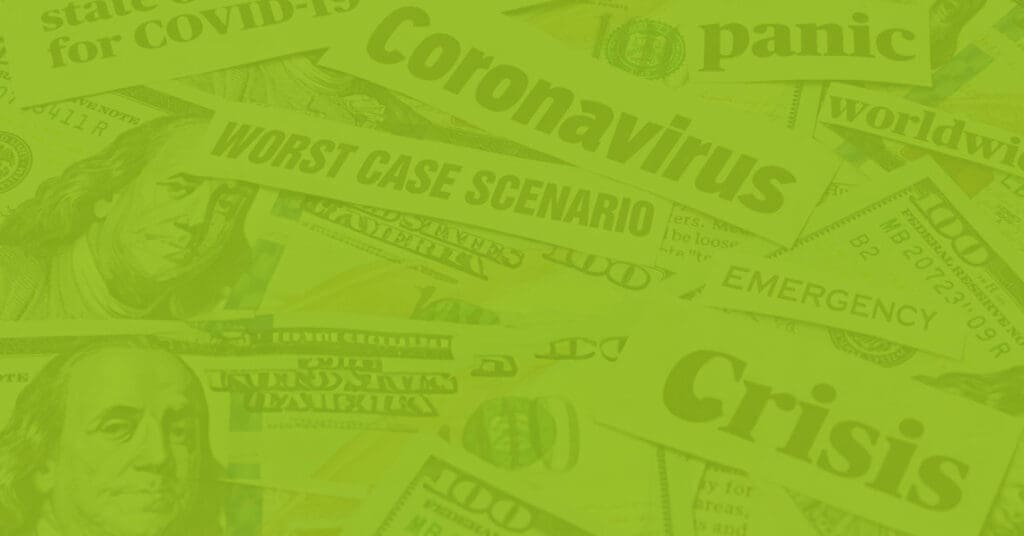
Turning Company Crises Into Strategic Wins
Company crises become strategic wins when organizations respond with clarity and intent instead of panic or defensiveness.
So, love it or hate it, it’s the digital age, where bad news can now go viral in minutes. Now, a single misstep can snowball into a full-blown crisis before a brand even realizes what is happening. A social media post from a company goes viral for all the wrong reasons, a supply chain hiccup becomes a customer service nightmare, or a newly announced partnership backfires in real time.
Whatever the crisis may be, these moments can feel like actual disasters, and without preparation, they can be. However, with the right communications strategy, they can also become opportunities for your brand, not only testing your company’s resilience, but also your authenticity and creativity.
In this edition of Plain Talk, we’ll explore how companies can go beyond simply managing a crisis to leveraging it to build trust and create long-term loyalty.
KEY TAKEAWAYS
- A well-rehearsed crisis plan ensures speed and confidence when pressure is highest.
- Assigning clear responsibilities and spokespersons avoids confusion and mixed messages.
- Structuring responses with acknowledge → empathize → act → resolve helps guide tone and timing.
- Consistent messaging across channels ensures audiences receive a unified story.
- Humor, honesty, and transparency can turn crises into opportunities for stronger trust.
- When handled well, tough moments can reinforce loyalty and even spark new engagement.
The Nature of a Modern Crisis
Company crises have always existed, but social media has completely rewritten their playbook. What once might have taken days to spread through traditional media now unfolds in real time across all social media platforms. Are you dealing with a frustrated customer? Their video can reach millions of people in just minutes, before you even have time to think about a press release.
The speed and scale of today’s crises leave little room for hesitation, which is why it’s more important than ever to be prepared for a situation and to act quickly. There’s no longer the luxury of “let’s wait and see how this goes.” Social media reactions can shape headlines and shift consumer confidence, so they require prompt attention. Companies must be fast and transparent to win a crisis today.
What do company crises plans include?
This is why it is imperative also to have a crisis plan in place (which we are happy to help your company with). What do these plans include?
- Potential scenarios that your company could encounter
- Clarity of roles so that, when a crisis occurs, you know exactly who will be handling what in this situation (including designated spokesperson and clear chain of command for internal and external communications)
- Response frameworks to guide you through the stages of your crisis, including acknowledgement, empathy, action and resolution
- Message alignment across all channels to avoid mixed signals
Modern crises are unpredictable, but preparedness is the biggest difference in whether your company is reactive or strategic. We often see companies reacting to a situation, and we can immediately tell if they’ve experienced a crisis before and if they have a strategy in place.
For those who aren’t prepared, the consequences quickly unfold. For example, when a brand is silent, the public begins filling the narrative with speculation and misinformation. When the company handles the crisis poorly, screenshots and news coverage will linger, impacting public trust. These companies may also face a drop in sales, and, just as significant, a missed opportunity for redemption.
However, with the right plan in place, brands can respond in ways that not only address the crisis, but do so in a way that opens the door to unexpected opportunities for trust and loyalty.
Case Studies in Company Crisis Response
Astronomer
“Nobody said it was easy…” – Coldplay, The Scientist
This line proved all too fitting when a seemingly innocent moment on a kiss cam at a Coldplay concert blew up into a crisis for the company Astronomer. The CEO was caught on camera with his Chief People Officer. When both tried to duck away from being shown, musician Chris Martin stated, “Either they’re having an affair or they’re just very shy,” propelling the scene into social media stardom.
TikTok sleuths began investigating, and the clip spread like wildfire, revealing the married CEO’s scandal with his also married colleague. Suddenly, Astronomer faced a crisis it likely hadn’t prepared for (because who would have ever envisioned a Coldplay concert in their crisis plan). However, it created an opportunity for the company to demonstrate strategic reputation management.
Astronomer’s response
It took Astronomer less than 48 hours to respond to the crisis, but in that time, the memes went wild. Social media was on fire with people creating their own videos mocking the situation, and people were flocking to the Astronomer pages to post negative comments. Trust was taking a hit.
However, Astronomer didn’t let the first social media statement (the typical, “we’re committed to our values and culture” statement) suffice. They saw an opportunity to win back trust in a big way by naming Gweneth Paltrow (yes, Chris Martin’s ex) as their temporary spokesperson in a tongue-in-cheek effort to humanize the brand. If you haven’t seen it, you are missing out. We’ll even help you out … just click here to watch it.
The video response was brilliant, and a true example of how to win a crisis. The crisis showed how silence amplifies damage, and how a response that acknowledges the crisis transparently, and not a defensive way, can help a brand regain control of the narrative and create a memorable recovery.
Sweet Loren’s
When the Cookies Crumbled: How a TikTok Hijack Sparked a Branding Meltdown
TikTok is usually where we’ll find some of the best brand crises being spotlighted. This was the case recently for a cookie company, Sweet Loren’s. Unfortunately, it found itself at the center of not-so-sweet chaos when a social media team member accidentally renamed the company after herself. (For those new to TikTok, a name change is permanent for seven days, meaning the company would be stuck with the team member’s name for that period.) This could have created public confusion where the brand issued a very formal statement. But let’s be honest, it wouldn’t have stood out. Instead, they were strategic and turned the mishap into a viral moment.
“Sweet Ryan’s”
The employee who changed the name, often the face of the company’s TikTok videos, started creating content about it, which quickly drew attention. From there, Sweet Loren’s leaned into the mistake and changed the logo to “Sweet Ryan’s,” after the team member who made the mistake. They continue to play off the error, which has grown into a lighthearted campaign of its own. Dozens of videos have been made about the name change in a creative way, which has led to an increase across the board—from followers to sales!
Sweet Loren’s turned what could have been a crisis into a fun experience, being transparent about the mistake and then owning it in an unforgettable way. As a result, they saw viral success and became a strong case study for how to win a crisis.
Building a Resilient Crisis Communications Plan
The most effective crisis communications don’t stop at damage control; they transform setbacks into strategic wins. When a brand responds with transparency and accountability, it strengthens trust. And when it seizes the media spotlight, it can redirect the conversation toward positive change. A crisis doesn’t have to be the end of a story. With the right approach, it can be the beginning of a stronger, more authentic chapter.
Regular run-throughs
Earlier in this article, we emphasized how important it is to have a communications plan in place (and let’s be clear—your company will face a crisis at some point). However, that’s not enough. A big differentiator is how comfortable your team is with the company plan. If it’s rarely looked at after it is created, it’s a recipe for disaster and failure. But if your team revisits it regularly and runs through it annually with the crisis team and chain of command, you are setting your company up for success.
Communication monitoring tools
Equally important as the communications plan are the tools you have at your disposal for the crisis. Social listening platforms and earned media monitoring systems provide real-time insight into how a situation is unfolding. If your company hasn’t invested in these tools, partnering with a public relations agency that has access is critical. These tools can help save you time and money while also giving you a clear pulse on public sentiment, allowing you to adjust messaging in real time.
Opportunity mapping
Finally, don’t overlook “opportunity mapping,” or thinking ahead to anticipate how certain crises can be reframed into strategic wins. Remember, audiences usually remember your response more than they remember the actual situation, so it’s important to not only resolve the crisis but to do so in a way that strengthens trust and sets your company apart.
A crisis plan is more than a playbook for survival. It should be your foundation for credibility and long-term success.
Writing Your Comeback Story
Crisis is inevitable. The difference in how you overcome the crisis lies in preparation and strategy. No brand can prevent every misstep or viral moment, but every brand can control how it responds. With the right mindset, even the most difficult situations can become turning points.
If you need help with your next crisis, developing a crisis communications plan, or preparing your team through media training, drop us a note here or give us a call at 502-499-4205.
Our Articles Delivered
Signup to receive our latest articles right in your inbox.






